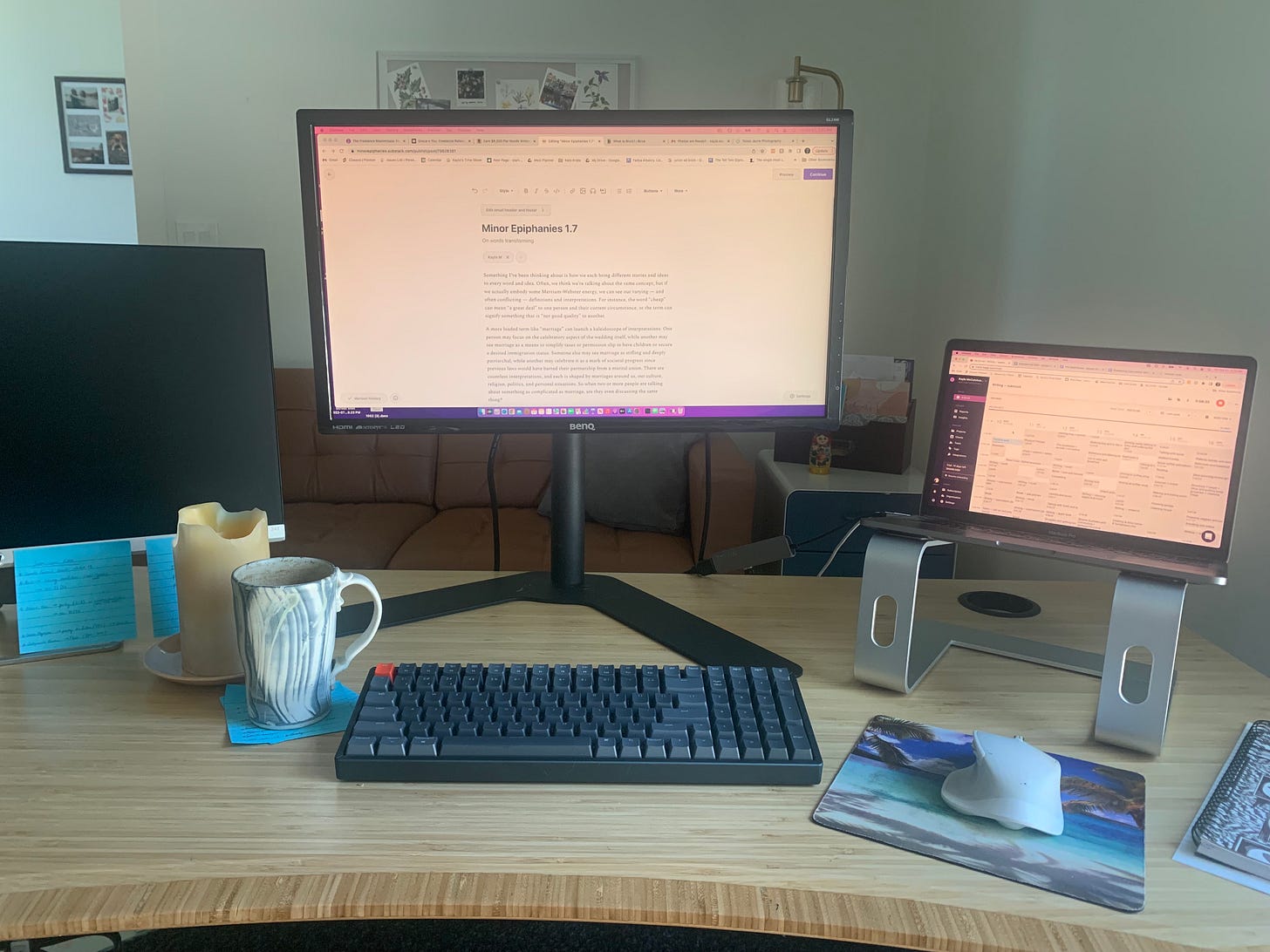We all bring different stories and interpretations to each word. Often, we think we’re talking about the same concept, but if we actually embody some Merriam-Webster energy, we can see our varying — and often conflicting — definitions. For instance, the word “cheap” can mean “a great deal” to one person and their current circumstance, or the term can signify something that is “not good quality” to another.
A more loaded term like “marriage” can launch a kaleidoscope of interpretations. One person may focus on the celebratory aspect of the wedding itself, while another may see marriage as a means to simplify taxes or to secure a desired immigration status or as a permission slip to have children. Someone else may see marriage as stifling and deeply patriarchal, while another may celebrate the mark of societal progress since previous laws would have barred their marital union. There are countless interpretations, and each is shaped by marriages around us, our culture, religion, politics, and personal situations. So when two or more people are talking about something as complicated as marriage, are they even discussing the same thing?

This concept is complicated by the fact that there’s not one right or wrong answer — just a truth for each person. And that personal truth can shift. The shift in meanings and interpretations fascinates me, and lately, I’ve had a shift with the word discipline.
Until recently, I felt a couple of ways about disciplined people and discipline in general:
Discipline is boring. It’s for people who are rigid and — perhaps worst of all — satisfied (I realize that all of these words may transform for me one day too).
I’m too “Type B” (as if there are only two types of people in this vast world) and too creative. Art needs to be made in stolen, scrappy moments without restrictive structure.
However, as previously mentioned, the implications and practices surrounding discipline have shifted for me. Instead of perceiving a disciplined person as too rigid, I see them as wildly dedicated to their craft. They’re not stuck; they’re persistent. To my ears right now, dis-ci-pline sounds ritualistic, holy, and sacred.
When learning about artists and especially their routines, I can see that structure is often necessary and enhances creativity. By being disciplined with my time and my priorities, I’m creating far more and am actually having fun with it. For instance, although I haven’t applied discipline to Substack recently (hello, two-month hiatus), I’ve applied this practice to other writing projects. In turn, I’ve submitted two grant applications and have made tremendous strides while researching and editing my novel.
I’ve also applied more discipline in my daily life. By tracking how I spend my time, first with Les Alfred’s “Time Audit Worksheet” and then with Toggl, I’ve built an inventory of how I spend my time and the changes I want to make. Also, despite my ongoing frustrations with my lack of routine, I eventually realized I did have some elements of a routine. After all, I bookended my morning and night by brushing my teeth, washing my face, and putting in or taking out my contact lenses. Stacking other habits onto these (à la BJ Fogg and James Clear) became easier; for example, I’ve tacked on my physical therapy exercises to occur after I walk my dog (in the morning) and after my nighttime tea (in the evening). Instead of ignoring my knee injury — like I did for the last 18 years — I’m making time for my exercises and am prioritizing my physical health. In that sense, I’m not only shifting my interpretation of the word discipline, but I’m also shifting my identity from someone who neglects their physical health to someone who makes it a priority.
Michelle Pelizzon talked about this priority/identity concept during a Holisticism event: “Our actions are informed by our priorities, and our actions create our identity.” ie. how we spend our time shapes us as a person. This concept seems obvious, but putting it into practice — and actually having/making time to embody your desired identity — is a totally different ballgame.
Right now, embodying discipline feels useful during this season in my life. During another time, discipline may feel too restrictive, and a word like grace or ease may resonate. I’m leaving room for words to transform. After all, our interpretations reflect where we’re at and what we want or need to hear.
Is there a word that’s recently shifted in meaning for you? I’d love to hear it 💜
This Minor Epiphany recommends:
Books:
Daily Rituals: How Artists Work by Mason Currey
Deep Work: Rules for Focused Success in a Distracted World by Cal Newport
Podcast episodes:
“Time Abundance” by The Balanced Black Girl
“The Systems That Help Prolific Creators Do Their Sacred Work” by The Twelfth House
Time-tracking tools:
Les Alfred’s “Time Audit Worksheet”





The feeling of getting into a groove is like no other. Love this word for you. ✨